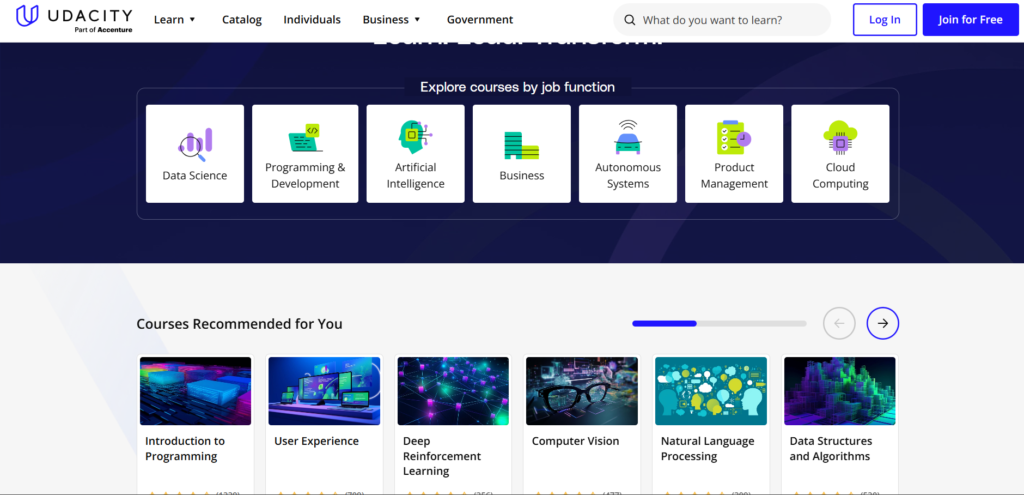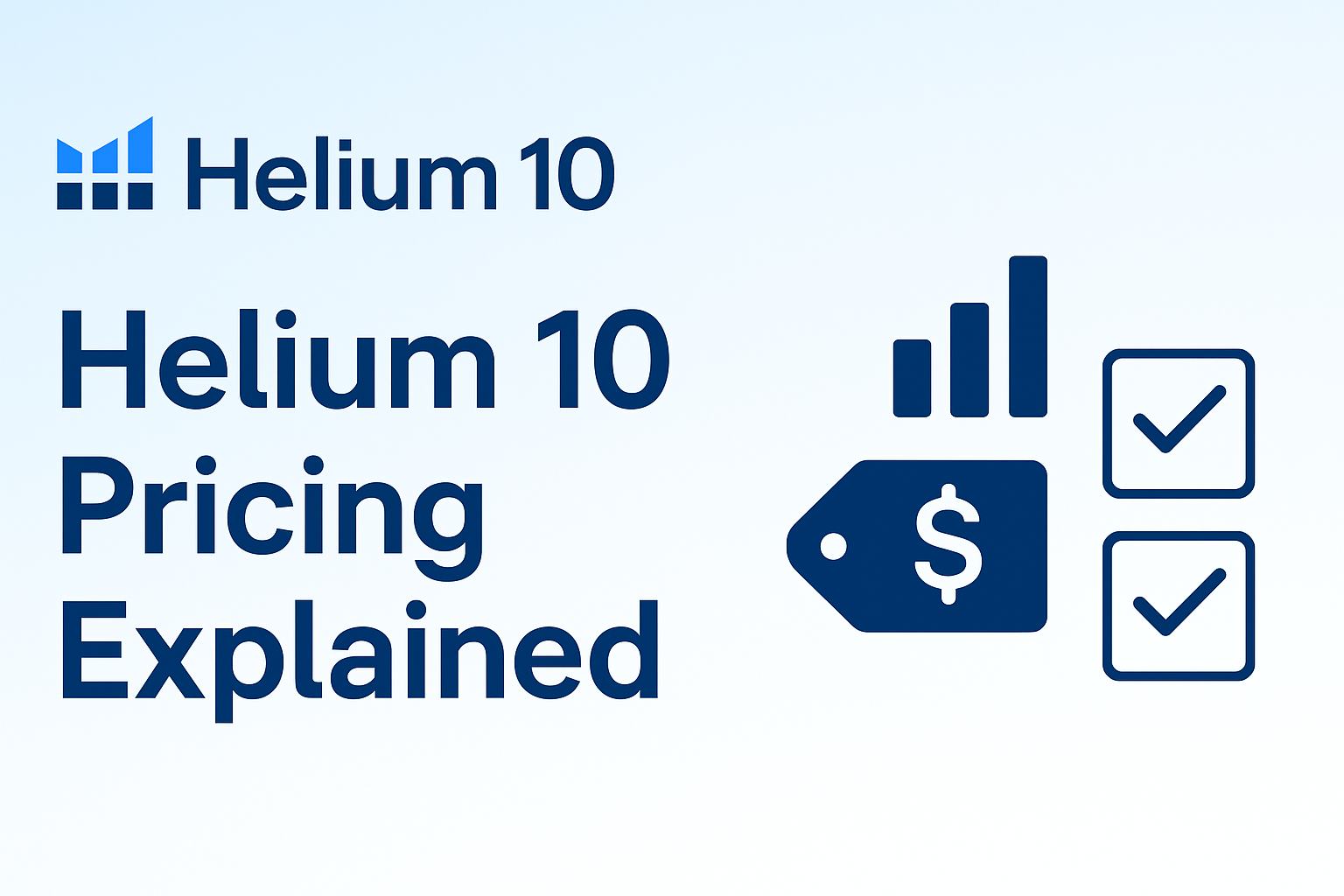With the rise of online education, two platforms, Udacity and edX, have become significant players in the e-learning space. Both platforms offer a wide variety of courses and learning opportunities, but they cater to different types of learners.
In this article, we’ll explore an in-depth comparison of Udacity vs. edX, analyzing the strengths and weaknesses of each platform. By the end, you’ll understand why Udacity stands out as the superior choice for many learners, especially those who want to develop industry-specific skills that lead directly to a career.
1. Course Offerings: Breadth vs. Depth
edX Course Offerings

edX, co-founded by Harvard University and MIT, offers a broad selection of over 3,000 courses across a wide variety of subjects. The platform hosts courses from top universities, such as Harvard, MIT, and UC Berkeley, making it a go-to for learners looking to study in traditional academic fields like computer science, engineering, humanities, business, and the social sciences.
Courses on edX are available in many formats, including free individual courses, MicroMasters programs, professional certificates, and full online degrees. Many of these courses are free to audit, and you can choose to pay for a certificate if you want official recognition of your learning. This gives students the flexibility to explore various subjects at their own pace.
Udacity Course Offerings

Udacity, on the other hand, takes a more specialized approach. The platform focuses on Nanodegree programs that are designed to help learners gain specific, job-ready skills in highly technical fields such as data science, AI, machine learning, programming, digital marketing, and cloud computing. Unlike edX’s broad academic offerings, Udacity provides industry-focused courses, many developed in collaboration with major companies like Google, Amazon, and IBM.
These Nanodegree programs are designed to teach practical skills that are in high demand across the job market. Udacity’s courses are not as diverse as edX’s, but they are highly specialized and focused on giving students the skills they need to succeed in a competitive job market.
Winner: Udacity
While edX offers a wide variety of subjects, Udacity’s industry-specific focus and job-ready Nanodegree programs give it a clear edge for learners who want to develop specialized, marketable skills in technical fields.
2. Learning Format: Flexibility and Engagement
edX Learning Format
edX courses are primarily composed of video lectures, quizzes, assignments, and discussion forums. Some courses include peer-reviewed assignments, and in more advanced programs like MicroMasters, students may also be required to complete projects and exams. edX is known for its academic rigor, with many courses following a traditional university-style format.
Most edX courses are self-paced, although some degree programs and MicroMasters are set on a specific schedule. This flexibility allows learners to progress at their own pace, but it can also lack the personalized support that some learners need to succeed. edX’s model is more about learning for knowledge rather than direct career preparation.
Udacity Learning Format
Udacity, by contrast, takes a much more hands-on, project-based approach. Each Nanodegree program is designed around real-world projects, where students apply what they’ve learned to solve practical problems. These programs include personalized mentorship, where students can receive one-on-one support from experienced professionals in their field. This makes Udacity’s format highly interactive and immersive, focusing on practical skills that can be directly applied in the workplace.
Udacity also offers career services, including resume building, job search assistance, and interview preparation, making it a more job-oriented learning experience. The learning pace is intensive and often quicker than traditional online courses, but the structure ensures that students gain the real-world experience employers are looking for.
Winner: Udacity
While edX’s academic courses are more theory-based and self-paced, Udacity’s structured, project-based learning and personalized mentorship offer a more comprehensive and job-oriented educational experience. This makes Udacity a better choice for learners who want hands-on, industry-specific skills.
3. Cost: Affordability and Value
edX Pricing

One of edX’s biggest draws is its affordability. Many of the courses on edX can be taken for free, with the option to pay for a certificate if desired. This allows learners to access high-quality content without committing to a large financial investment upfront.
For MicroMasters programs and professional certifications, the costs typically range from $100 to $1,500, depending on the program length and institution offering the course. Full degree programs can be more expensive, often running into the thousands of dollars.
However, since edX offers a free audit option for many of its courses, it can be a more affordable choice for those who just want to learn without needing official certification.
Udacity Pricing

Udacity’s Nanodegree programs tend to be more expensive, with prices ranging from $399 to $799 per month. However, the higher price tag reflects the intensive, career-focused curriculum, personalized mentorship, and real-world project feedback that students receive.
Udacity also offers a job guarantee for certain Nanodegrees, meaning that learners who complete the program and meet job search requirements are guaranteed help in finding a job. This makes Udacity’s programs an investment in your future career.
Winner: Udacity
In terms of affordability, edX takes the win. However, for learners seeking in-depth career preparation and industry-specific skills, Udacity’s higher price can be justified due to the added value in mentorship, career services, and job guarantees.
4. Support: Mentorship and Career Assistance
edX Support
edX provides learners with a variety of support options, such as discussion forums, peer interaction, and limited access to instructors through office hours or course discussions. However, the platform doesn’t offer personalized mentorship, meaning learners have to rely more on self-study. The level of support also varies depending on the course or program you’re enrolled in. For example, free courses generally don’t include mentorship or personalized feedback.
In some MicroMasters programs, you can get support from teaching assistants, but it’s not as intensive or personalized as what you’d find on Udacity. The focus is more on academic rigor than career coaching.
Udacity Support
In contrast, Udacity is known for its personalized mentorship. Each Nanodegree program comes with access to an expert mentor who helps guide you through the material, provides feedback on projects, and answers any questions you might have. This mentorship is tailored to your learning needs, making it much more hands-on than the support offered by edX.
Additionally, Udacity provides career services, such as resume workshops, interview coaching, and networking opportunities, ensuring that learners are job-ready when they complete their program. This level of support is ideal for those looking to transition to a new career or level up in their current job.
Winner: Udacity
With its personalized mentorship and career coaching, Udacity stands out in terms of student support. edX offers some support through forums and teaching assistants, but Udacity’s more hands-on, career-focused assistance is a major advantage for learners looking to land a job.
5. Industry Recognition and Job Readiness
edX Industry Recognition
edX offers many courses from prestigious universities, which are recognized by employers in a variety of fields. For learners interested in gaining knowledge and earning a certificate from a top university, edX is an excellent option. However, edX’s courses often focus more on academic knowledge and theory than on job-specific skills.
For instance, while MicroMasters programs may help learners advance their careers by providing advanced knowledge in a subject area, they do not always offer the practical, industry-specific skills that employers are seeking. The platform offers a great education but may not be enough for someone who is looking to transition into a technical career or a fast-growing industry.
Udacity Industry Recognition
Udacity’s Nanodegrees are designed specifically for learners seeking to develop industry-relevant skills. The platform partners with leading tech companies like Google, Amazon, and IBM to develop its programs, ensuring that the content is tailored to current industry needs. Employers highly recognize Udacity’s programs because they are aligned with the skills companies are actively seeking in their employees.
In addition, Udacity offers a job guarantee for specific Nanodegrees, which further boosts its credibility. If you complete the program and don’t land a job within a certain timeframe, you receive your money back. This feature underscores Udacity’s commitment to making sure its learners are job-ready upon completion.
Winner: Udacity
With its industry-driven curriculum, strong employer partnerships, and job guarantees, Udacity ensures that its learners are equipped with the skills employers want. If you’re looking to launch or advance your career in the tech industry, Udacity provides a clearer pathway to employment than edX.
6. Reviews: What Learners Are Saying
What edX Learners Say
Learners appreciate the breadth of courses and the opportunity to learn from world-renowned universities. Many learners use edX for personal enrichment, professional development, or as a way to earn an official certificate from a prestigious institution. However, some learners report that the lack of personalized support and practical application makes it harder to immediately apply the knowledge gained in the real world.
What Udacity Learners Say
Udacity receives strong praise for its practical, project-based learning and personalized mentorship. Many students say that the real-world projects and industry focus made their Nanodegree programs worthwhile, especially when seeking a career change or advancement. However, the high cost is often cited as a drawback, though many feel the investment pays off in terms of career opportunities and job readiness.
Winner: Udacity
Udacity’s focus on real-world projects and personalized mentorship earns it positive feedback, especially for those aiming to develop practical, marketable skills. While edX is praised for its academic courses, it doesn’t offer the same level of support or industry-specific content that Udacity provides.
Conclusion: Why Udacity Wins
Both Udacity and edX offer valuable learning experiences, but when it comes to job readiness, industry-specific training, and personalized support, Udacity stands out as the superior choice.
With its Nanodegree programs, industry partnerships, and hands-on, project-based learning, Udacity equips learners with the skills they need to enter the workforce or advance in their careers.
While edX is an excellent option for academic enrichment and theory-based learning, Udacity’s focus on practical, job-ready skills makes it the better choice for those serious about a career in today’s fast-paced, technology-driven world.
FAQ’s
What is the main difference between Udacity and edX?
Udacity focuses on industry-specific, job-ready Nanodegrees, while edX offers a broader range of academic courses and degrees from top universities.
Which platform offers more affordable courses?
edX is generally more affordable, with many free courses, whereas Udacity’s Nanodegrees come at a higher cost for specialized training.
Does Udacity provide personalized mentorship?
Yes, Udacity offers one-on-one mentorship and career coaching in its Nanodegree programs.
Which platform is better for tech career preparation?
Udacity is better suited for tech career preparation with its specialized, industry-driven Nanodegrees.
Are certificates from edX recognized by employers?
Yes, edX offers certificates from prestigious universities, making them recognized by employers, especially in academic and professional fields.



